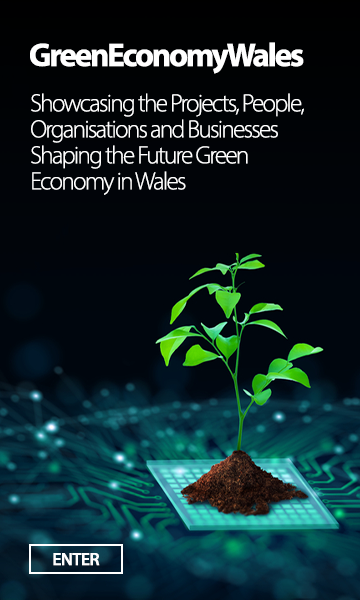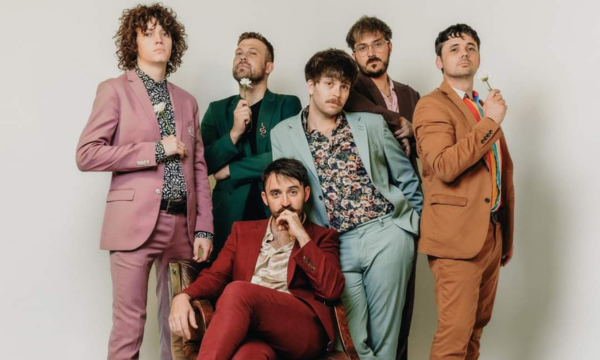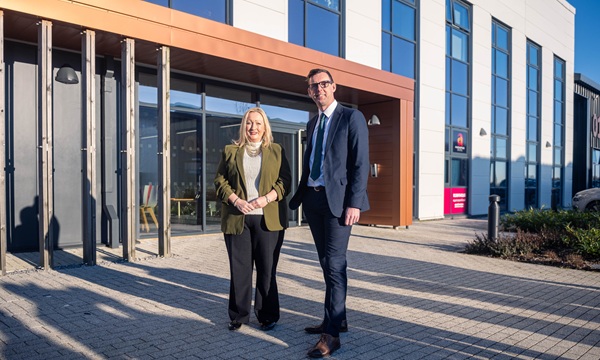Interview with Councillor Anthony Hunt, Leader of Torfaen County Borough Council and Chair of the Cardiff Capital Region Regional Cabinet.
Can you tell us about your role and responsibilities, and your background?
I’m the leader of Torfaen Council and a councillor from Griffithstown, where I live with my family. I was first elected as a councillor in 2012 and was member for resources before becoming Leader. I’ve worked at Welsh and UK government level before. I’m a very keen cyclist, and a football and rugby fan.
Leader of the council is a busy job, trying to balance the local representative role you have as a local councillor with the things you do at a regional level, and do the best for the people in our communities.
How do you manage your work-life balance?
It’s never a role that’s going to be 9-5. It’s all-consuming sometimes, but I like to have time with my family or on my bike to escape the rigours of it all. The thing I love about it is it’s varied and challenging. It’s the not the job to do if you wanted something you could switch off from easily.
I got into politics because I love trying to help people, and that’s what unifies it all, whether you’re dealing with something very big at a regional level, or at ground level trying to help individuals or groups out.
How well does the CCR Regional Cabinet work together, what is the nature of the structure in which you work?
We all have that determination to do the best by the areas we serve, but we’ve got a unified determination to do the best by the region, move beyond parochial squabbling towards all pulling together in the same direction.
But we are all different characters, and all our organisations have different cultural identities. I think we’ve got a really good balance between different organisations who play different roles and approach things differently. We never get into parochial or partisan squabbling, we all try to work together to do our best for our communities and for the wider region, and I think that’s really encouraging.
How traumatic do you think the impact of the last few months will be on businesses and our communities?
It’s been a very tough time for businesses in the region. It’s key that we make sure we have purpose in helping our communities and helping our regional economy, and we don’t try to duplicate what’s done at a local or national level; that we see what we specifically can do to help businesses move out of this, and help them face the challenges that Covid has brought.
There are other things we can do to help them adjust to conditions as we move out of Covid and I hope we can take that forward. It’s easy in times like this to get pessimistic and despair at how to move forward; we need to roll up our sleeves and do our best to help the regional economy and our communities through very difficult times.
One of the silver linings of Covid is that it has shown the strength of our communities, they’ve really pulled together. How can we as a city region harness that strength, alongside Welsh Government and local councils? How can we build the resilience of our communities?
How have the Regional Cabinet pulled together over the last few months?
It’s brought us closer together. The 10 of us are probably sick of the sound of each other’s voices, because of the need to speak almost daily about the common challenges we’re facing, from keeping services running to creating new services like test, trace and protect. All those things we’ve come together to talk about. That will pay dividends in the future because there’s a high level of trust and of understanding of the different challenges we face.
What are the key things the CCR needs to focus on as we emerge from lockdown?
We should move away from the old economic development model to seeing ourselves as catalysts, working with quality indigenous companies in our region to see how we can make things work for them. We need to identify areas where our region has a pre-existing strength and a specific opportunity.
We also need to focus on the fact we are one region. We’ve got the cities of Cardiff and Newport, but we’ve also got the valleys communities. We need to spread the prosperity throughout the region. There are some areas with very big socio-economic challenges throughout the region; not just in the valleys, in parts of Cardiff as well. How do we make sure bring all the region forward?
The foundational side is very important; I’m very glad Phillipa Marsden, leader of Caerphilly Council, has taken that on. Lastly, it’s very important we look at some of the challenges that face us in a post-Covid world, in things like social care.
We’ve seen an upsurge in investment activity with more projects emerging through the pipeline, what do you think they’ll bring to the region?
What excites me is that idea that we’re tapping into particular specialisms we have, and we’re creating clusters that can reverberate outwards. We want to bring in high quality jobs, but we also want to increase the basic level jobs those communities will rely on as well.
It’s exciting to be moving towards that phase where we can talk about specific projects progressing. At the start of any journey you have that phase where you’ve got to build those foundations, but what excites me is getting to that delivery phase, being able to see things take shape.
Tell us why the compound semiconductor cluster is so important for us, and how will the wider region benefit?
It’s important to build those specialisms that you’re renowned for as one of the best in the world as a region, because that draws in other expertise and opportunities.
We sometimes think of our region as massive, but on a global scale it’s not. For every big investment there are 10s and 100s of smaller businesses as part of the supply chain And if we can get the infrastructure right, the Metro and the skills, the housing, the digital infrastructure, across the region, it means the region can grow as a whole. What we can’t do is have overheated parts of the region and other parts being left behind.
We know how important collaboration and cohesion are, is there more we can do and is there anywhere you’d like to see a more collaborative approach taken?
We’ve got the balance right between having that cohesion and collaboration, and having people who are willing to be critical friends. The foundations are there for a very positive relationship.
One of my fears with the post-Covid world is there’s lots of actors on the stage; they’re all well-intentioned and they’re all trying to do their best. But we can’t afford to all be trying to occupying the same part of the stage. We need to be working together, otherwise we’re not going to be producing a play that’s entertaining to watch.
Finally, fast forward 12 months, what would you hope the CCR would have achieved?
I look forward to seeing our projects come through, both in terms of the investments, and also in terms of the wider strategic infrastructure. I’d hope we’re continuing the way we’re working together collaboratively, and I really hope we’re seeing the fruits of the decisions we’re making in our local communities. I’d also hope that we’re beginning to build a resilient region to come out of the Covid pandemic.





















